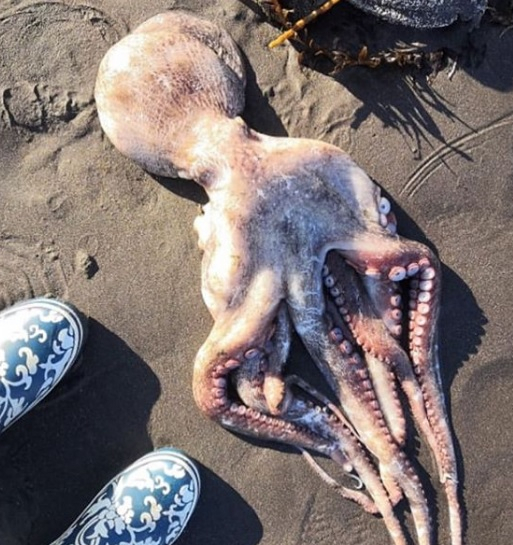Dozens of dead sea animals washed up on beaches of Kamchatka in eastern Russia from the Pacific Ocean that triggered a massive concern among environmentalists. After the news came out in public, an investigation was launched and what they found is beyond anybody's imagination.
The expedition team of scientists from the Kamchatka Research Institute of Fisheries and Oceanography, Kronotsky Nature Reserve, and the Kamchatka branch of the Pacific Institute of Geography analyzed water samples and conducted a survey of the area of the Avacha Bay.
As per Ivan Usatov, a researcher at the Kronotsky Reserve and the Pacific Institute of Geography, the team of scientists found that almost all of the ocean life along the seabed in the Avancha Bay region has been wiped out.

Long-term Consequences
Alexander Korobok, the underwater photographer who was on the expedition said that after the dive "I can confirm" that there is an environmental disaster behind it. He also said that as per the findings the ecosystem has been significantly undermined and it will lead to the long terms 'long-term consequences,' as everything in nature is interconnected.
Russian ministry is investigating the waters as many people speculated that the recent incidents—the appearance of dead marine animals on Russian beaches and people complaining about fever, rashes, and swollen eyelids after going into the ocean—have been caused by water contamination, linked to nearby military test sites, possibly due to the rocket fuel leakage. However, Kamchatka's governor has rejected such claims.
Another report suggested the possibility of a fuel leak from one of the ships that came through the ocean waters near the Bering Sea. However, the branch of World Wildlife Fund for Nature (WWF) in Russia said that the unusual death of marine creatures has suggested surface contamination of the ocean and a chemical release that had diluted in the water.
As per Greenpeace, a pollutant, on the surface as well as in the water, is moving along the coast. According to the tests, it was found that the petroleum levels were four times higher than usual and the phenol levels were 2.5 times higher.
The disastrous incident is the latest environmental tragedy to hit a remote part of Russia. However, in May, reports, and images revealed the fuel spill incident near the Arctic Circle city of Norilsk, causing the release of 20,000 tons of diesel into waterways.
Environmental Disaster
However, Usatov explained that the expedition team took samples, searched for dead animals, and also performed survey dives. The finding revealed that the condition of marine mammals, as well as birds, is normal, and the team did not find any emissions of large dead sea animals, and birds.
But when diving—near the mouth of the Nalycheva River, on the Nalychev Cape, in the area of Starichkov Island, in the Tikhaya and Salvation bays—they found that "at depths from 10 to 15 meters...95 percent are dead. Some large fish, shrimps, crabs have survived, but in very small quantities."He also added that "water samples were taken directly from the Nalychev River. No animals were found there.
As for Cape Nalychev, there were recorded dark uncharacteristic water in the bottom layers, brown foam, and a very poor underwater world of animals."Environmental disaster in Russia's remote region
Read more









